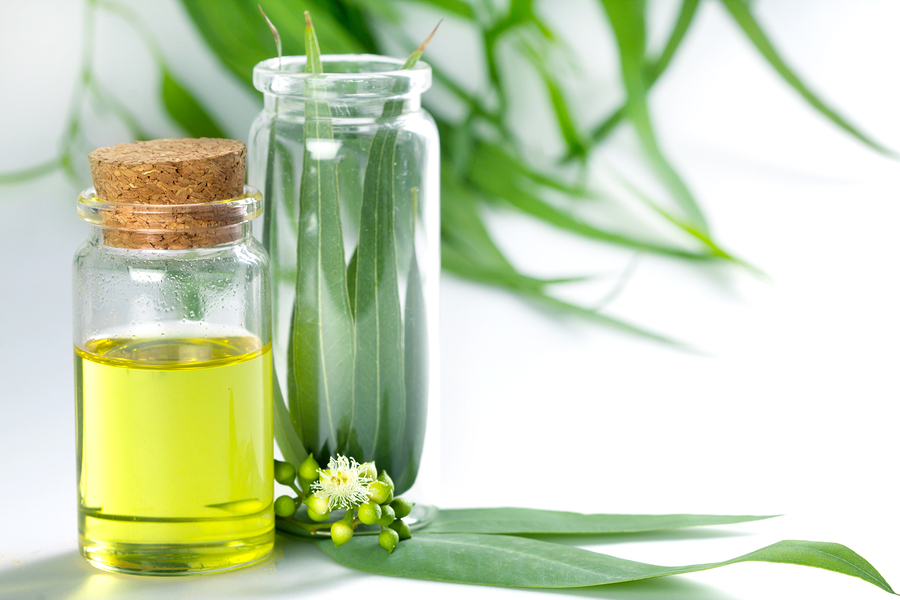Eucalyptus has held a place in herbal medicine for centuries. Native to Australia, there are more than 680 species of eucalyptus, ranging from scrappy shrubs to towering trees. The bark and leaves provide a rich source of the pungent, heady fragrance that has become popular in modern aromatherapy. Specifically, Eucalyptus essential oil (EO) has attracted research attention for easing symptoms of respiratory illness.
The medicinal properties of Eucalyptus EO include anti-inflammatory, antimicrobial, antispasmodic, antibacterial, antiseptic and expectorant. The primary active component, cineole, loosens phlegm so the body can expel it more easily, easing symptoms such as cough, runny nose, sore throat, and congestion. Eucalyptus EO is found in many over-the-counter remedies including throat lozenges, inhalants, decongestant syrups, and chest rubs. However, it’s unsafe to ingest eucalyptus oil or to apply undiluted oil directly on the skin.
As an aromatherapy remedy for respiratory symptoms, you can buy eucalyptus prepared as a tea, chest rub, or vaporizer. You can also purchase organic Eucalyptus EO for use in bath water, to add to a vaporizer, or a room diffuser. The oil distributes in the steam, which helps open the nasal and respiratory pathways as you inhale. In a bath, add 1 tbsp of milk (almond, cashew or rice) with the oil to enhance dispersal of the oil.
Before preparing a home remedy, consult with a holistic physician about the proper dilution of the oil as it can interact with other medication, create an allergic reaction for some people, and requires different preparation for children than for adults.
References
- Johnson, R.L., S. Foster, Low Dog, T. and Kiefer, D. “Eucalyptus.” National Geographic Guide to Medicinal Herbs: The World’s Most Effective Healing Plants. (2012) 75-77. Washington, D.C.: National Geographic.
- Kehrl, W. Sonnemann, U., Dethlefsen, U., “Therapy for Acute nonpurulent Rhinosinusitis with Cineole: Results of a double-blind, randomized, placebo-controlled trial.” Layrngoscope (April 2004). DOI: 10.1097/00005537-200404000-00027. Available: http://onlinelibrary.wiley.com/doi/10.1097/00005537-200404000-00027/full
- Nordqvist, Joseph. “Eucalyptus: What are the health benefits?.” Medical News Today. MediLexicon, Intl., 17 Feb. 2017. Accessed: 19 Sep. 2017: https://www.medicalnewstoday.com/articles/266580.php
- Salari, M.H., Shirazi, A.G., Hafezi, R., & Mohammedypour, M. “Antibacterial effects of Eucalyptus globulus leaf extract on pathogenic bacteria isolated from specimens of patients with respiratory tract disorders [abstract].” Clinical Microbiology & Infection. (2006, February) Accessed September 2017: http://www.ncbi.nlm.nih.gov/pubmed/16441463
- Serafino, A., Sinebaldi Vallebona, P., Andreola, F., Zonfrillo, M., Mercuri, L., Federici, M., &… Pierimarchi, P. “Stimulatory effect of Eucalyptus essential oil on innate cell-mediated immune response. BMC Immunology.” (2008, April 18). Accessed 19 September 2017: http://www.ncbi.nlm.nih.gov/pmc/articles/PMC2374764/

